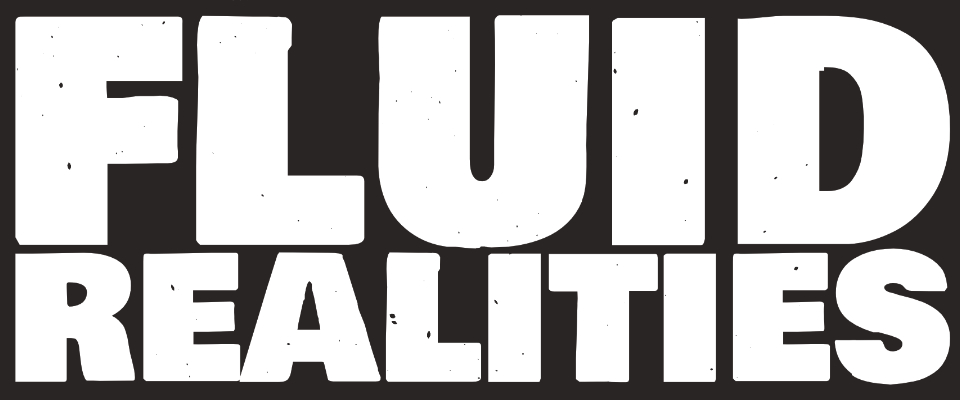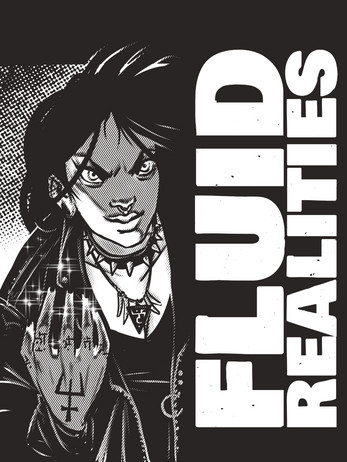
Fluid Realities
A downloadable game
Download NowName your own price

Fluid Realities is a minimalist game about the secret war between modern mages in a 90's gothic-punk world.
This is an homage to the classic Mage: The Ascension using the rules of John Harper's Lasers & Feelings.
| Status | Released |
| Category | Physical game |
| Rating | Rated 5.0 out of 5 stars (30 total ratings) |
| Author | Bruno Prosaiko |
| Genre | Role Playing |
| Tags | ascension, feelings, lasers, mage, minimal, One-page, Tabletop role-playing game |
Download
Download NowName your own price
Click download now to get access to the following files:
Fluid Realities.pdf 6.9 MB
Fluid Realities - Plain Text.pdf 85 kB
Fluid Realities.epub 8.4 kB
Fluid Realities - Character Sheet v1.1.pdf 1,006 kB
Fluid Realities [French Translation] - Plain Text 136 kB
Fluid Realities - Règles - FR.pdf 7.8 MB
Fluid Realities - Feuilles de Personnage - FR.pdf 794 kB
Development log
- French FilesJul 25, 2025
- French TranslationMay 12, 2025
- Added character sheetAug 25, 2023

Comments
Log in with itch.io to leave a comment.
Fale Bruno! Fiz um rpg inspirado no seu Fluid Realities, mas baseado nos sangue fraco de VtM. Se puder dá ar uma checada aqui vai o link https://elvescard.itch.io/sangue-ruim-rpg :D
Massa, Elves! Já baixei quando saiu. Quando eu conseguir ler com calma, te passo feedback. ^^
As vezes eu nem sei como reagir a essas diagramções lindas. Louco pra jogar logo esse jogo
Valeu, Lucas! Se chegar a jogar, depois me diz como foi. ^^
Xacomigo, mano!!!
I just played today. It was SUPER fun! All the flavor of Mage the Ascension with far easier rules!
That's great, Marcos! I'm glad to know! ^^
I really love this L&F hack! Thank you. By any chance, did you also write an adventure generator later that you would share here?
I have no plans to do so right now. Maybe in the future.
This looks absolutely awesome! Not only do I want to play it, I also want to hack it in various ways to emulate the Invisibles or full-on Mage the Ascension.
Invisibles would actually be easier, probably. With Mage, I'd feel the need to include the, well, Ascension aspect and that means something resembling seekings, avatars, enlightenment. But perhaps that can all be done without mechanics?
Edit: I ended up writing up some alternate/expanded things for the game, primarily alternate takes on Paradigm and Paradox so far, if you're interested I can send you what I came up with.
Great, Ufnal! I usually resolve these elements only narratively, but I'd love to see your approach. ^^
So, I don't see any way to send private messages on itch, so I'll just paste what I have:
Paradox alternatives
The Price
Attention
Unmaking
Incursions
Beliefs - expanded alternative to Paradigm
Four questions that will flesh out your character's beliefs, personality, Magickal style and Path. 1 sentence answers are enough, although 2-3 sentences are also okay.
How does the world work?
What makes it possible to do the things you and other Mages do? What is the hidden truth about Reality that is being Lied about?
How should the world change?
What is it that you're fighting the War for? What is the Reality you wish to see?
What are you?
What makes you able - and worthy - of changing Reality and deciding what it should be? Why are you determined to wage the War?
What can you become?
What is the goal at the end of your personal Path? What is the ideal you yourself strive towards? What is Ascension, for you?
Avatar and Ascension
When creating your character, describe your Avatar - a being inside you (or a facet of your soul or psyche) that guides and pushes you forwards on your Path. Does it appear wearing your face, as a saint or legendary being, as a ghost from your past, a voice in your head or on the wind, or something else entirely? What does it want you to become, and how do you get on with each other?
Once per session, when you roll an Epiphany, you can declare that its insight stirs something within you - makes you question things, makes you want to explore something within yourself, makes you determined to progress on your spiritual journey. Then, either in a slower moment during the session or between sessions, you and your GM will play out a Seeking - a symbolic journey and test that your Avatar subjects you to, connected to the Epiphany. If you fail, you may change your Beliefs to reflect how that failure influenced you. If you succeed, you *must* change something in your Beliefs to reflect what you've learned and how you've grown. Once a session, you can claim an Advantage on a roll where you would normally have none, if you can show how your previous Seekings have prepared you for this kind of situation or course of action.
Sorry for the huge delay in responding. I don't have any references for spells yet. Since this is a game heavily inspired by Mage: The Ascension, you can take inspiration from the type of magic that is done there, just simplifying all the systems involved.
Basically, the character can do anything that their Paradigm (belief) allows. This is quite open, I know. In fact, characters can try very powerful effects, but doing so openly can accumulate Paradox and draw unwanted attention.
In the end, it is up to the players to decide how epic or subtle the game will be, and the GM is encouraged to respond accordingly.
I think I can understand the idea better now... but for example, the Hellbender Paradigm, what would be possible to do with it? Can you give some examples?
Let's see. The Hellbender paradigm says:
This paradigm indicates that the magician is someone who deals with secrets and manipulates weaknesses. Maybe in a John Constantine kind of vibe. This can be interpreted in several ways, for example:
And so on. The idea is to extrapolate the interpretations of the paradigm to create evocative effects.
this explain was very helpfull, thanks
Hi!
We had a game yesterday evening and it was great, thanks!
As the GM I only encountered two difficulties with the rule:
- the rule to increase paradox is not clear? do you need to take some rest just after a backlash? or could you have a bunch of backlashes on different actions and then take some rest?
- we quickly encountered some corner cases for the distinction between coincidental and vulgar magick, for instance is divination coincidental if nobody else sees anything? is talking with elemental spirits coincidental with your mage is the only one hearing them?
Hey! I'm so glad you played and enjoyed it!
Paradox is cumulative. The character is not required to rest to reduce it, it is just something that can be done. Each backlash and each entire day without performing magic recovers 1 point towards the Paradox threshold. If you want to take a risk, the character can have several consecutive backlashes before deciding to take a day off to recover.
Any magic that a sleeping observer would not notice or view as a mundane event is coincidental. Magical perceptions are good examples of coincidental magic.
If the character talks to inconspicuous spirits, a sleeper might only see it as a lunatic talking to himself. However, if the character causes a spirit to act physically, such as commanding a wind spirit to lift him or a storm spirit to suddenly change the weather, then we could consider it vulgar magic even if the spirit itself is not seen.
It is worth remembering that several "coincidences" happening successively in a short period of time begin to seem too unlikely. Ultimately, the GM is the arbiter over each event.
Thanks for the question and good gaming to you!
This looks incredible. This also reminds me of The Invisibles by Grant Morrison.
One small typo: In the explanation for Audacity under the Rolling the Dice section you spelled it "Vulgar magik" without a "c" but elsewhere it looks like you spelled "magick" with a "c."
I'm glad you liked it. Thanks for letting me know. I'll try to fix it in the not too distant future.
Looks fantastic but i have a question : A mage looks for imrpving himself, his skills, his status, his wealth,... How do manage that in your games ?
Good question, ShamZam!
Normally L&F hacks are not designed for long campaigns, they work much better for short adventures or one shots. If I were going to handle a campaign, I imagine I would be dealing with evolution within fiction rather than adding subsystems to the game.
"Power" for Fluid Realities mages is related to their influence over Reality. If you manage to change the consensus of what is or is not real for people, the paradox starts to affect you less or not at all. This can take interesting paths...
Another, more direct and faster narrative way of dealing with improvement is the advantage rule. If the mage is in an advantageous situation, roll an additional 1d20 on the check. Therefore, seeking ways to always "have an advantage" is a common goal. How each mage seeks this varies with their paradigm.
For example, an urban shaman can make pacts with powerful spirits. A hellbender can call in favors from archdemons. A hermetic sorcerer can discover lost grimoires from Atlantis. And so on. Each quest for power can yield entire adventures.
Regarding the status of mages, this is resolved through their actions in game. As the cabal takes down enemies and spreads its influence, its reputation grows exponentially (and new, more powerful enemies emerge).
Thanks for your question. Hope this helps. ^^
It does enlight me. Thx !
This game looks phenomenal. It does everything I find so intriguing about Mage, while being so much more accessible and honestly, more fun to read. And how did you manage to pack so much into just a couple pages and still fill the thing with personality and splash art?
Thank you, Sabrina! I'm glad you liked it.
It was really a challenge to synthesize Mage into such basic concepts. It's tempting to try to address metaphysical ideas and subsystems, spheres and organizations... In the end, L&F's design was the guide. Reading John Harper's microgames taught me a lot about how to synthesize ideas and I ended up using some elements that I had already used in another hack, Symphony of the Devil. Cutting text and rewriting sometimes gives my heart ache.
As for the look, I opted to make the font a little smaller to free up space for the illustrations. I left out some things like an adventure generator to make room for the layout. I love the look of the 90s World of Darkness books and I wanted to convey a little bit of the feeling I had when leafing through them for the first time. Difficult to do this in such a small space, but I hope I came close.
Anyway, thanks for your comment, Sabrina. I believe my answer shows how being synthetic is a challenge for me. ^^
Looks dope! It reminds me of Wights (polish Strzygi) which are made also on L&F and evokes owod atmosphere. If you are interested, you can find it here: https://skavenloft.itch.io/strzygi (most of supplements are in polish, but corebook is available in english)
Sounds interesting. I'll search! ^^
I wanna play Unknown Armies with this. ;)
Oh, good idea!
Awesome!
Thanks, Ricardo!